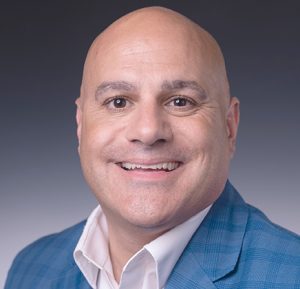Making decisions about public policy is no simple task. It requires balancing interests, exercising our values, and making choices among competing ideas. When we vote, should we favor candidates who will cut taxes or those who will improve services? Should we support a strong American presence in the world or keep our focus on domestic issues? The answers aren’t easy.
And where do we look to develop the values that shape these decisions? For many of us, they start with our families, friends, and colleagues. Faith and community organizations play a role. We often look to people whom we admire: examples from history, influential figures in public life, and admirable individuals we have known.
Ultimately, we should return to this guiding standard: Will our decisions advance the common good? We won’t all agree on what the common good is, but the question should be a starting point.
(Sponsored)

Finding the Right Business Banking Partner: 4 Considerations to Support your Search
In today’s increasingly dynamic and competitive business environment, finding the right banking partner to meet the needs of your business is critical to your success. Banks are not one-size-fits-all and

Keeping Tabs on Employee Internet Use Could Create Employer Liability
Question: As a private sector employer trying to police our employees’ unauthorized use and/or abuse of our internet system, are we in danger of violating any privacy laws? Answer: If
In fact, the idea of the common good runs through public life in the U.S. It was a key concept for the Enlightenment philosophers who influenced America’s founders. They connected it to the ideal of citizenship, the notion that people should engage in public life.
John Adams, our second president, wrote, “Government is instituted for the common good … and not for profit, honor, or private interest of any one man, family, or class of men.” James Madison wrote in the Federalist Papers that governments should identify wise leaders in search of the common good.
But what do we mean by the common good? The founders left some hints in the Preamble to the Constitution. They sought “a more perfect union” that would promote elements of the common good: justice, domestic tranquility, the common defense, the general welfare, and the blessings of liberty.
These phrases are meaningful, but they leave room for debate. What is the “general welfare.” What happens when domestic tranquility conflicts with individual liberty? In today’s world, does the “common defense” include supporting our allies in Israel and Ukraine, or should it focus on securing the border? In our democratic society, we continually define and re-envision the common good.
And that’s a real challenge in these politically divided times. Polarization is nothing new in America; in some ways, it’s baked into our two-party system. But increasingly, it seems like Republicans and Democrats live in separate worlds. Surveys find that many Americans view members of the opposing party as dishonest or immoral. This plays out in Washington, D.C., where Congress is so divided that it has passed only a handful of bills this year and can barely agree to keep government operating.
How do we get out of this mess? We can start by reminding ourselves that we are all Americans, regardless of party, and there’s more that unites us than divides us. We share a common history, and we all have a stake in the peace and prosperity of our nation. It’s our duty as citizens to engage with people with different views, to listen to them and seek common ground.
We also need to remember that, in a diverse and pluralistic society like ours, compromise is a necessity. One of the most worrisome findings in recent public-opinion polling is that many Americans view compromise as a dirty word. If we’re going to make progress, we need to recognize that our side won’t get everything it wants. The common good includes what’s good for you, not just what’s good for me.
I have always believed that the American people are fundamentally decent, optimistic, and forward-looking, regardless of our differences. We are fortunate, in our democracy, to be able to discuss, debate, and ultimately reach agreement on tough questions. It’s up to us to define the common good and to continually strive for the more-perfect union that the founders envisioned.
Lee Hamilton, 92, is a senior advisor for the Indiana University (IU) Center on Representative Government, distinguished scholar at the IU Hamilton Lugar School of Global and International Studies, and professor of practice at the IU O’Neill School of Public and Environmental Affairs. Hamilton, a Democrat, was a member of the U.S. House of Representatives for 34 years (1965-1999), representing a district in south-central Indiana.



